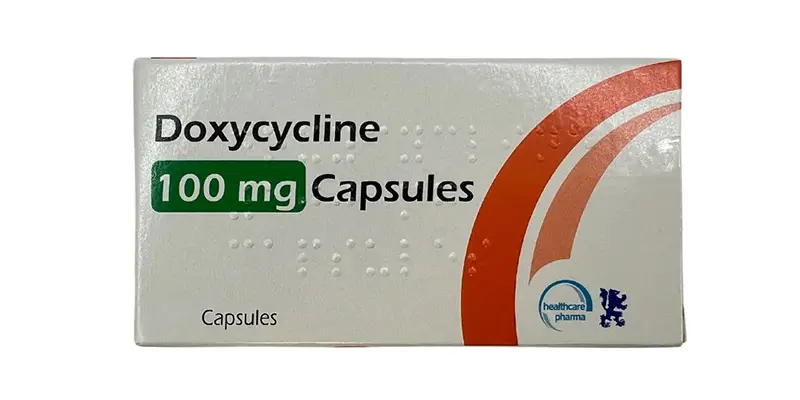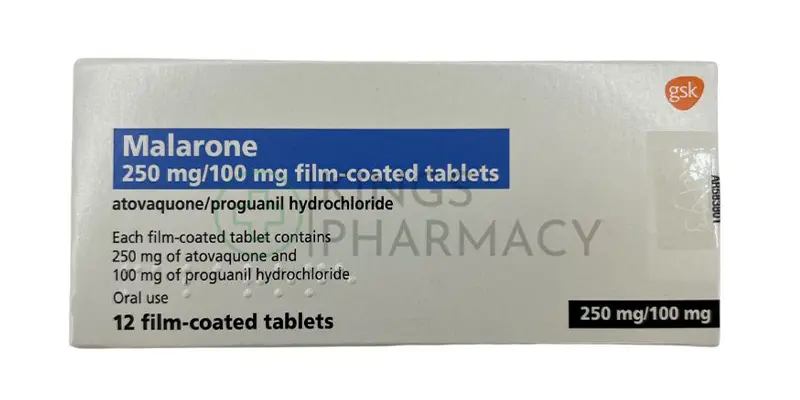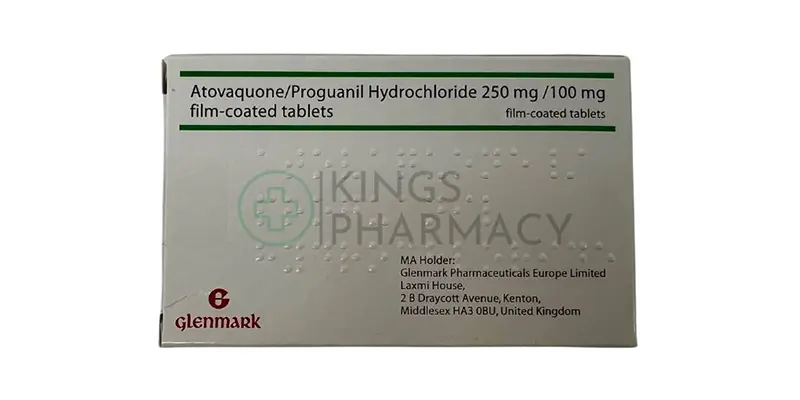Doxycycline for Malaria
Doxycycline is an antibiotic used to prevent and treat malaria, particularly in areas where resistance to other medications is common. It works by inhibiting the growth of the malaria parasite in the blood. Typically prescribed as a daily dose, it is most effective when taken in conjunction with other preventive measures. Patients should be aware of potential side effects, including gastrointestinal upset and increased sensitivity to sunlight.
Select Strength
Overview of Doxycycline for Malaria
Doxycycline is an effective antibiotic used for the prevention and treatment of malaria, especially in regions where resistance to other medications is common. It works by inhibiting the growth of the malaria parasite in the bloodstream.
Dosage and Administration
To ensure maximum effectiveness, it’s essential to follow your healthcare provider's instructions on dosage. For malaria prevention, start taking doxycycline at least one day before entering a malaria-endemic area. Continue taking it daily during your stay and for four weeks after leaving the area.
If you miss a dose, take it as soon as you remember, but if it’s nearly time for your next dose, skip the missed one. Never take two doses at once to make up for a missed one.
Food and Drug Interactions
Doxycycline can be taken with or without food, but taking it with a full glass of water can help prevent throat irritation. Avoid taking doxycycline with dairy products, antacids, or supplements that contain iron, as these can interfere with the medication's absorption. Always inform your healthcare provider about any other medications or supplements you are taking, as interactions can occur.
Side Effects
Common side effects include nausea, vomiting, diarrhea, and increased sensitivity to sunlight. To reduce the risk of sunburn, apply a broad-spectrum sunscreen and wear protective clothing when exposed to sunlight.
If you experience severe side effects such as severe headaches, rash, or difficulty breathing, seek medical attention immediately, as these may indicate an allergic reaction.
Special Considerations
If you are pregnant, planning to become pregnant, or breastfeeding, discuss this with your healthcare provider. Doxycycline is generally not recommended during these periods due to potential risks to the fetus or infant.
Follow-Up Care
Regular follow-up appointments with your healthcare provider are important to monitor for any side effects or complications from doxycycline. Make sure to communicate any new symptoms or concerns you may have during your treatment.
Questions and Concerns
Always feel free to reach out to your healthcare provider with any questions or concerns regarding your treatment plan. Being informed and proactive can help ensure a successful outcome in preventing or treating malaria.
What are malaria capsules used for?
Malaria capsules are prescribed to prevent malaria, a mosquito-borne disease caused by parasites. They are especially important for travelers to malaria-endemic areas.
How do I take malaria capsules?
Take the capsules as directed by your healthcare provider. It’s usually recommended to start taking them at least one day before entering a malaria-prone area and continue daily throughout your stay and for four weeks after leaving.
What should I do if I miss a dose?
If you miss a dose, take it as soon as you remember. If it’s almost time for your next dose, skip the missed one and return to your regular schedule. Never double up on doses.
Can I take malaria capsules with food?
Many malaria capsules can be taken with or without food. However, taking them with a full glass of water may help prevent throat irritation. Check with your healthcare provider for specific instructions related to your medication.
Are there any side effects?
Common side effects may include nausea, diarrhea, and sensitivity to sunlight. If you experience severe reactions such as rash, severe headache, or difficulty breathing, seek medical attention immediately.
Should I avoid anything while taking these capsules?
Yes, avoid dairy products, antacids, or supplements containing iron, as they can interfere with the absorption of the medication. Always consult your healthcare provider for a complete list of contraindications.
Can I take malaria capsules if I'm pregnant or breastfeeding?
Discuss your situation with your healthcare provider, as some malaria prevention medications may not be recommended during pregnancy or breastfeeding due to potential risks.
How effective are malaria capsules?
When taken as directed, malaria capsules can be highly effective in preventing the disease. However, they should be used in conjunction with other preventive measures, such as using insect repellent, sleeping under mosquito nets, and wearing protective clothing.
What should I do if I experience symptoms of malaria?
If you develop symptoms such as fever, chills, sweats, headache, nausea, or muscle pain while taking malaria prevention capsules, seek medical attention immediately. Early diagnosis and treatment are crucial.
Can I stop taking the capsules if I don’t see any mosquitoes?
It's important to complete the entire course of medication as prescribed, even if you do not see mosquitoes. The risk of malaria can vary, and prevention is essential.






